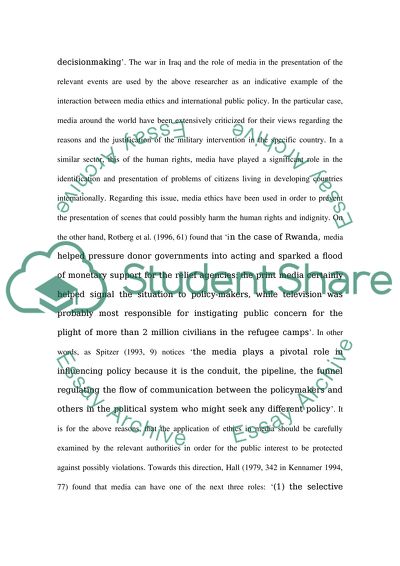Media Ethics in International Public Policy Essay. Retrieved from https://studentshare.org/miscellaneous/1541468-media-ethics-in-international-public-policy
Media Ethics in International Public Policy Essay. https://studentshare.org/miscellaneous/1541468-media-ethics-in-international-public-policy.


